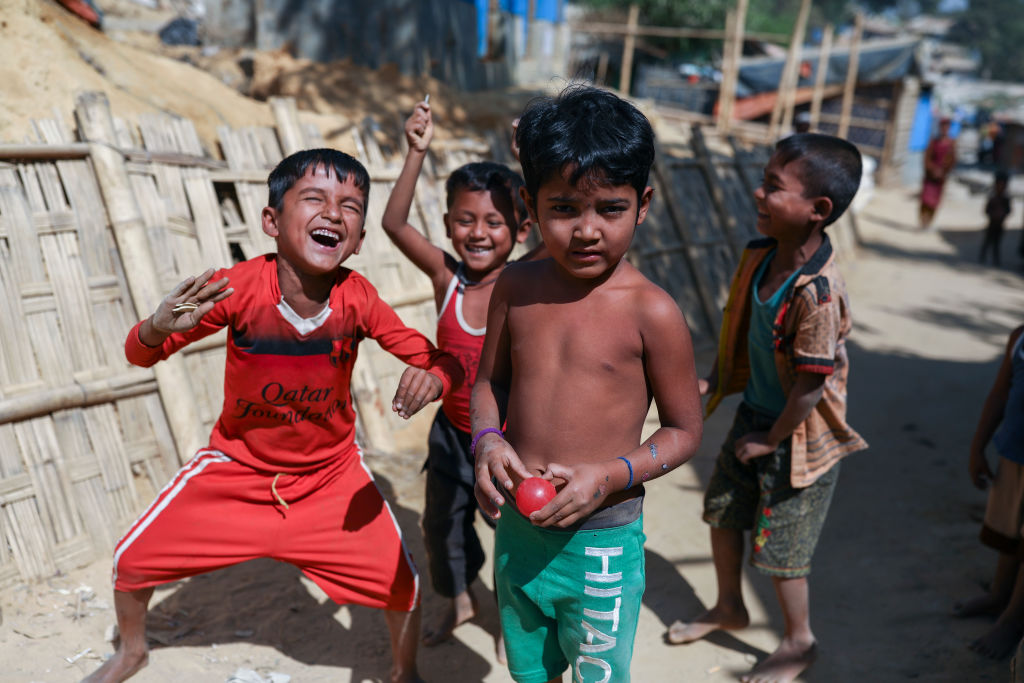
The Bangladeshi government is violating the right to education of nearly 400,000 Rohingya children residing in the country, a rights group claimed Tuesday.
Rohingya children are prohibited from enrolling in local schools, Human Rights Watch (HRW) says, basing the allegation on interviews with teachers, aid workers, government officials and more than 150 Rohingya refugees in Bangladesh. More than 700,000 mostly-Muslim Rohingya refugees from majority-Buddhist Myanmar’s western Rakhine state live in crowded camps in the country.
U.N. humanitarian groups and international NGOs are also barred from providing formal accredited education to Rohingya children, says the report. Unable to open official schools, some NGOs have built bamboo structures to serve as learning centers, but these reportedly lack water, electricity, desks and chairs.
Bangladesh has prohibited the learning of its official language and the use of the Bangladeshi curriculum, says HRW.
A Rohingya teacher told Human Rights Watch that there were as many as 300,000 children in the camps “who did not even finish class three, and their future will be destroyed, because there is no proper education.”
HRW accuses Bangladesh of preventing refugee children from accessing education to prevent them from integrating into Bangladeshi society and staying in the country.
“Depriving children of education just compounds the harm to the children and won’t resolve the refugees’ plight any faster,” Bill Van Esveld, associate children’s rights director at Human Rights Watch, said in a statement.
“The government of Bangladesh saved countless lives by opening its borders and providing refuge to the Rohingya, but it needs to end its misguided policy of blocking education for Rohingya children.”
Myanmar has also played a part in lack of access to education for the Rohingya, HRW claims, saying that it has refused to approve the use of its curriculum in Bangladesh. The rights group adds that many of the children had already dropped out of the education system before they fled Rakhine state due to discrimination, harassment, government blocks on Rohingya teachers or movement restrictions which prevented students from traveling to schools.
Humanitarian groups have stepped in to create a new informal curriculum, but officials have been slow to approve it.
Other former teachers have set up private schools in their shelters, but these have reportedly been closed when discovered by camp officials. The report alleges that at least two of these informal schools were closed in 2018 for teaching grades 7 through 9, which officials deemed “too advanced.”
Hundreds of thousands of Rohingya fled to Bangladesh in 2017, after Myanmar’s army began a campaign of arson, rape and murder against the Rohingya which the U.N. has said was carried out with genocidal intent.
Attempts to repatriate the Rohingya have failed. Rights groups like HRW have called for the suspension of plans to send the refugees back to Myanmar until their security, basic rights and access to citizenship can be ensured.
The U.S. has imposed sanctions on several top Myanmar military officials for their roles in the campaign against the Rohingya.
In November, the International Criminal Court approved a request from prosecutors to open an investigation into crimes committed in Myanmar.
The decision came just days after a case was filed at the International Court of Justice (ICJ), on behalf of the Organization of Islamic Cooperation, accusing Myanmar of genocide.
Myanmar’s leader, Aung San Suu Kyi, plans to testify in front of the ICJ in The Hauge next week to defend her country against the charges. The case is expected to last for several years.
More Must-Reads From TIME
- The 100 Most Influential People of 2024
- Coco Gauff Is Playing for Herself Now
- Scenes From Pro-Palestinian Encampments Across U.S. Universities
- 6 Compliments That Land Every Time
- If You're Dating Right Now , You're Brave: Column
- The AI That Could Heal a Divided Internet
- Fallout Is a Brilliant Model for the Future of Video Game Adaptations
- Want Weekly Recs on What to Watch, Read, and More? Sign Up for Worth Your Time
Write to Amy Gunia at amy.gunia@time.com